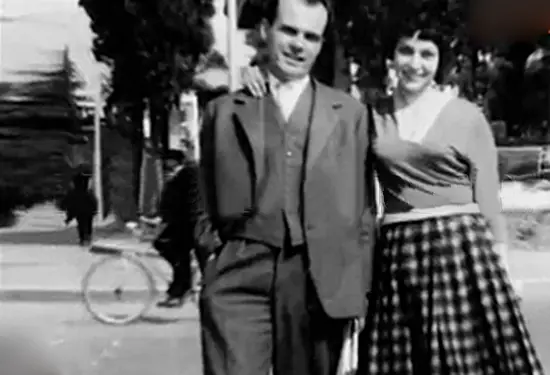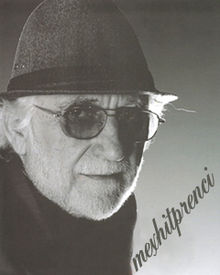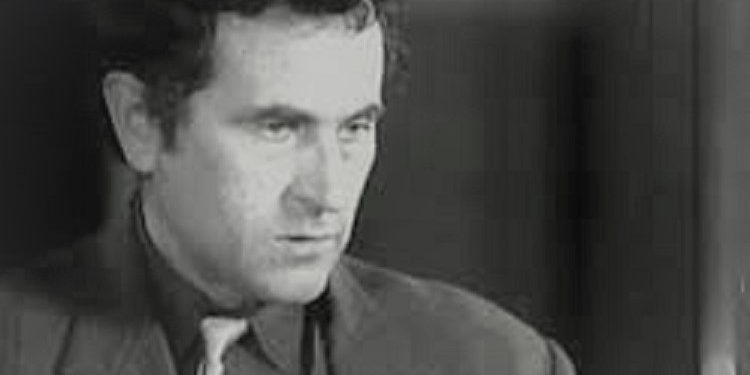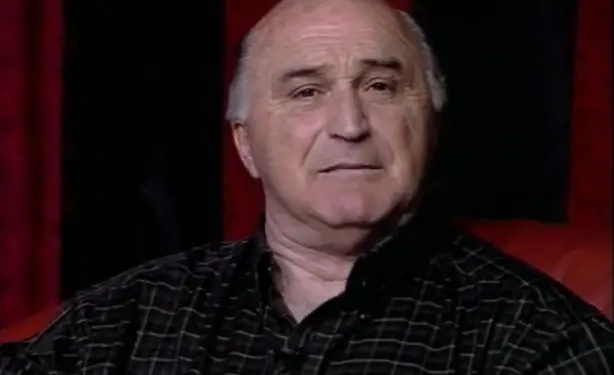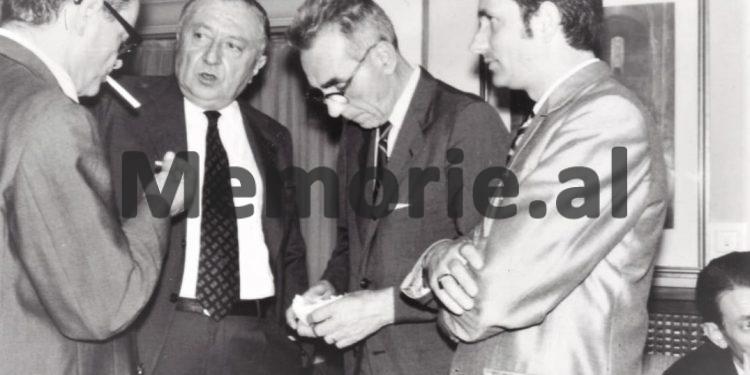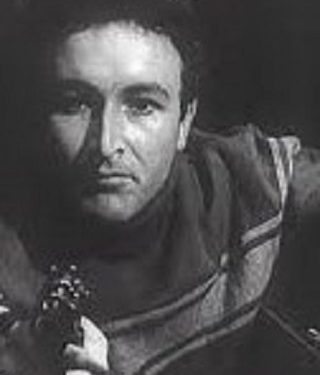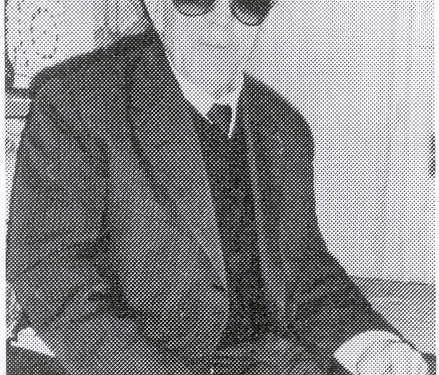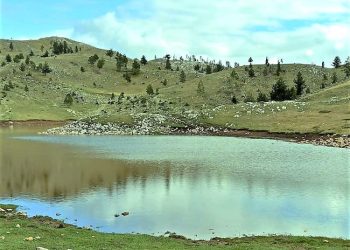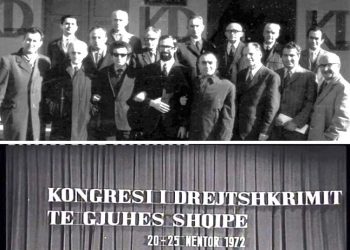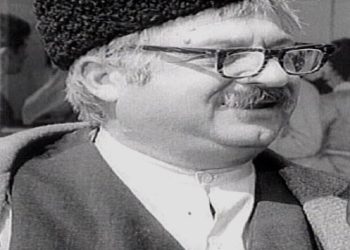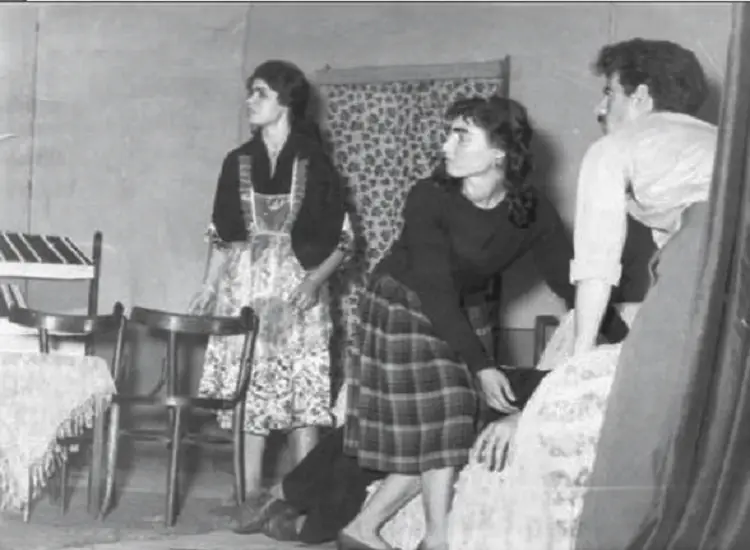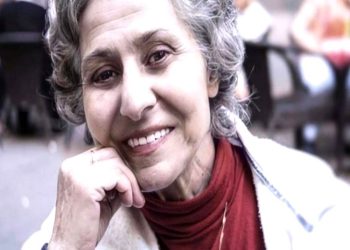By Asije Hoxha
Memorie.al / In the Association of Writers and Artists, before the 4th Plenum of the Central Committee, in 1973, a special meeting was organized only for dramaturgy. Ramiz Alia was also present. The focus of the harshest criticism was Fadil Paçrami, who was described as a drama-maker who opposed the party’s line in the field of literature and art. At the meeting, some creators took a critical attitude towards themselves, denying their creativity. Those who dared to defend themselves were rare. One of those who dared to defend him by telling the truth was the director Kujtim Spahivogli.
Mejit Prençi, present at this meeting, remembers: “Not feeling the danger, Kujtimi spoke without hesitation, without diplomacy. When everyone criticized Fadil Paçram, he started criticizing others, from the positions of a patriot and a communist. Ramiz Alia immediately interrupted him from the hall: “Reminder, leave these things, talk about yourself and the relations with the enemy of the party and the people, Fadil Paçrami”. After a pause, Kujtimi began to say: ‘I had a relationship with my friend Fadil as a director-playwright, and I even encouraged him to write, because he was talented. I was honored to have him as a friend! Everyone would be honored to have him as a friend! He had been a member of the Central Committee of the Party, Minister of Culture, President of the People’s Assembly…’!
‘O Kujtim!’; Alia interrupts again. ‘What are these, brother? Talk about yourself! How do you understand the situation, how do you feel the party’s fight against foreign influences and shows? Have you made mistakes, in addition to the good sides you had? Talk about that!” But, Kujtimi continued to talk about some of Paçram’s dramas that he had staged, which according to him, brought innovation in the relationship between the old and the new. He did not think that just for this discussion, a wing worker would be sent to Fier. The debaters began to criticize.
One strongly criticized the drama “Studentja e veti ultim” by Ibrahim Uruç, because the main character, Afërdita, abandons her lover and is satisfied with just one word “I don’t want it”. This is not an argument, it is not our position. This is a liberal attitude to ‘free love’, which destroys our socialist family, says a revolted debater. The names of playwright Minush Jero, director Mihal Luarasi and stage designer Ali Oseku were also mentioned in the discussions, as liberal and modernist models, for blackening the socialist reality, in the drama “Brown spots”, which was recalled and targeted by critics.
The drama “Njollat e murrme”, at the National Theater Festival, in 1969, won the Festival Flag. A festive evening was organized at the Central House of the Army for the presentation of the flag. According to Prenc’s notes, members of the Political Bureau – Mehmet Shehu and Ramiz Alia – participated in this show. Among other things, Mehmet Shehu said: “This drama and this spectacle, reflects with bright colors our socialist reality, in development and on the right path. The messages of this drama are a knife for the enemy and an inspiration for us.” Enver Hoxha was also informed about the success of this drama, who asked to see it.
After the show ended, the leader coldly clapped and left without going on stage, as he usually did in other shows. In the Political Bureau, after an urgent meeting, the leader also spoke about the drama: “Drama darkens and distorts reality.” The characters are not our educated and seasoned party people. The spots they have are not brown, but black…! We don’t have doctors like that, who doesn’t move from the bed to save a human life. The author and the director were wrong. They have distorted the reality”. In this meeting, Mehmet Shehu was the first to stand up, and made self-criticism, denying himself and raising the thoughts of the leader.
After self-criticism in the high dome, analysis and self-criticism began in the Ministry of Education and Culture, in the Association of Writers and Artists. The author of the drama, Minush Jero, maintained a strict attitude towards his work. Among other things he said: “I am a student of my great teacher. I didn’t do well on the drafting topic. The teacher gave me a grade four.” Meanwhile, Luarasi starts his lecture with a popular proverb that says: “After the battle, many brave people emerge.” I will say it openly. No one has made such remarks about the drama and spectacle (it had passed seven censorship rings). She is loved by everyone, you who are here in this room and outside of it. It was also liked by other leaders of the party and the state…”!
After the meetings and discussions of literary and artistic creativity, the 4th Plenum of the Central Committee of the Party convened. The Plenum was held on June 26, 1973. If the XV Plenum in 1965 hit hard and violated the creative freedom of writers and artists, the IV Plenum of 1973 was the punisher and killer of the creative freedom of authors and works that the white lines had been crossed.
In the Plenum, in his speech, Enver Hoxha also spoke about drama and theater. Among other things, he said: “In the development of socialist realism literature and art, during the entire communist regime, the party and its leader Enver Hoxha kept the war on against every liberal show and foreign influences in aesthetic thought, in literature and arts. In June 1973, the Fourth Plenum of the Central Committee of the Party was convened”.
We quote some fragments from the speech of the main leader in the IVth Plenum, to understand the terror prepared against writers and artists, who had reflected in their creativity, “decadent and modernist elements from the bourgeois-revisionist culture”:
“All these (decadent elements…), no matter from what position they attack Marxism-Leninism and socialism, no matter what slogans and arguments they use against them, unite in the main goal, in the goal of showing that capitalism has overcome the contradictions his; that bourgeois society has improved; that now capitalism and socialism are converging towards the same society; that there is no more room for class war; there is no more room for revolutionary revolution; there is no more place for communist ideals…! Every day there are new schools and schools that resemble countless religious sects and heresies.
However, they have a common philosophical basis which is idealism with all its infinite refinements… The main themes and heroes of decadent modernist art are murderers, prostitutes, immorality, social pathology…! We have appreciated and appreciate only revolutionary, progressive and democratic foreign art, are it from the past or from our century…! We will use it in the future critically, because this is necessary for the cultural development of the masses, for their ideo-aesthetic education as well as for the formation of those tastes that resist the degenerate and vulgar, bourgeois-revisionist influence…!
In some sectors, such as those of art, culture and education, the basic organizations of the party have never been in the leading role, in charge of the work. They have not dealt with the basic problems of the content of the activities of these institutions; they have not exercised their influence and role, for the correct understanding and implementation of the party line…! They have been damaged in this direction by the wrong concepts, according to which the problems of art and culture are matters that mainly belong to specialists and that the basic organizations of the party do not have to interfere in these matters….! The basic organization in any case bears full responsibility in implementing the party line…! For the party line, every communist should be a specialist”.
With this plenum, the main leader of PPSh, Enver Hoxha, spoke clearly and with order: “In the first place, the line of the party does not matter”. The plenum reiterated and clarified the basic principles of the socialist realism method; underlined the great danger posed by the so-called “universal cultures”, which are in fact the ideological weapons of the superpowers and whose aim is to eradicate the cultures and national literature of small peoples; the necessity of protecting and keeping pure socialist realism; protection of the national and popular character of literature and arts; evaluation of national traditions and especially the literary-artistic tradition of socialist realism, etc.
“And to think, – says Mejit Prençi, – Enveri rarely went to see theater shows. From what he has seen, he has banned more than he has approved. With the sword of the class war, he killed and cut as he wanted, whom he wanted and when he wanted”. Mejit Prençi considers the self-humiliation of the creators, who sent a letter to the leader before the 4th Plenum of the PPSh Central Committee, a painful reality:
“The stage artists wrote to him four days before the dictator’s speech in the Plenum: ‘As party soldiers at the front of the stage, we will always sharpen ideological-revolutionary vigilance, to keep the freshness of our socialist art pure and intact. Equipped with the ideas of the party and your thoughts, Comrade Enver, we expressed our determination to say no to foreign bourgeois-revisionist influences…” (Also published in the newspaper “Drita”, on June 22, 1973).
Despite the self-criticism of the playwrights, directors, stage designers, directors of theater institutions, who through this letter lost their freedom of creative thought and at the same time themselves, Enver Hoxha was merciless towards them. In the genre of dramaturgy, the punishment of artists with the motivation “enemies” of the party and the government began. With this charge they were convicted and imprisoned; playwrights, directors, scenographers, art directors, editors, etc. Before them, the party’s senior functionary and socialist realism playwright, Fadil Paçrami, and PPSh Central Committee member, Todi Lubonja, were imprisoned “for liberal positions and foreign bourgeois-revisionist performances”. The punishments were as ridiculous as they were unmotivated.
Mejit Prençi recounts an episode from the trial of the director Mihal Luarasi, where his student, L.Z., appears as a witness before the jury: “We were in Korça at a theater event. One day we were drinking ‘Korça’ beer in the bar of the Officers’ House, with the defendant Mihal Luarasi. During the conversation, he tells me that the management of the theaters should not be communists, but theater specialists. He was against the party policy to lead in the theater. The President of the Court, Irakli Bozo, addresses Luaras: ‘Defendant, what do you have to say?” Luaras replies: ‘What this person (I don’t even mention his name) says, I have confirmed to the investigator, but with this man, I have never talked about these things, because I did not deserve to talk with him’. The hall burst into laughter, in approval of this satirical language!
In the period 1945-1955, censorship in dramaturgy was milder, not aggressive. The themes of the dramas were permeated by the revolutionary and patriotic spirit. In this period, the theater was at the level of amateurism. In the years 1955-1960, the first steps of professional theater were being taken. Professional theaters created a new artistic reality on a professional basis, while at the beginning of the 1960s, young playwrights and directors, to assert themselves in the field of theater, increased professionalism through their shows, introducing a liberal climate in the use of tools modern directorial and new thoughts and messages.
The party, informed of the liberal spirit that was spreading in the fields of creativity after the IV Plenum on literature and the arts, took drastic Stalinist measures, condemning in the field of literature and the arts all those who had violated the white lines of The party. In the book “Drama and Spectacle Prohibited”, there are the names of those convicted after the two Plenums in 1965 and 1973. Divided by profile, we read:
Imprisoned Playwrights:
Ethem Haxhiademi, Kin Dushi, Ibrahim Uruçi, Fadil Paçrami, Minush Jero.
Playwrights convicted in various jobs:
Xhemal Broja – from the Central House of Popular Creativity, in exile in Lushnje.
Naum Prifti – from the magazine “Ylli”, in Divjakë, Lushnje.
Fatos Arapi – from university lecturer, teacher in Vlora.
Qamil Buxheli – from the editor-in-chief of Ylli magazine”, in Sukth of Durrës.
Kolë Jakova – from the League of Writers and Artists, on the coast of Mata and in the highlands of Lezha and Mirdita.
Teodor Laço – from the League of Writers and Artists, at the “Bylis” theater in Fier.
Ruzhdi Pulaha – from Radio Tirana, teacher in Pogradec.
Petro Marko – in Himare, in a free profession.
Imprisoned directors and scenographers:
Mihal Luarasi – from the director, in Spaçi prison
Ali Oseku – from a set painter, in Spaçi prison
Convicted and persecuted directors:
Kujtim Spahivogli – from director at the People’s Theatre, worker in Fier.
Pëllumb Kulla – by playwright, worker in Vlorë.
Lec Shllaku – from director in Shkodër, director in Elbasan.
Leka Bungo – from director in Tirana, electrician in Fier.
Bujar Kapexhiu – from director, worker in Dajti Quarries and Valias in Tirana.
Condemned researchers, critics, editors:
Bardhyl Kosova – from the director of the National Theatre, a teacher in Berat,
Kudret Velça – from critic and lecturer at the Academy of Arts, teacher at the Dukes of Vlora.
Mezhit Prençi – from editor and critic at the Central House of Popular Creativity, in Kashar, Tirana.
Miho Gjini – from theater critic and inspector, to production, then to prison.
Prohibited dramas and comedies:
40 dramas were banned and removed from circulation, such as:
Gjergj Fishta’s dramas – “Judas Maccabe”, “Babatas’ Donkey”…!
Et-hem Haxhiademi’s dramas – “Pirrua”, “Achilles”, “Aleksandri”…!
The dramas of Naum Prifti – “Bullets and letters”, “White siege”…!
Dritëro Agolli’s drama – “White Age”…!
Skender Luarasi’s drama – “Storm in April”, etc
Suspended performances:
12 performances were suspended, such as:
The drama “The Irreplaceable”, directed by Piro Mani.
The drama “Miku i Namiku”, directed by Serafin Fanku.
The drama “It was all my sons”, directed by Misto Zoto, etc.
If poets, painters, writers are added to this list, it is very long. We are mentioning only a few, which are an expression of the fear that had caught the leaders of that time, that literature and art were getting out of their hands. Thus the poet Xhevahir Spahiu, from being a journalist, was sent to production in Valias; Agim Gjakova, from ATSh, a teacher, Teodor Laço, in Fier, Koço Kosta in the village, Sadik Bejko, from RTSh, a miner in Memaliaj, Faslli Haliti, in Myzeqe, Frederik Rreshpja in prison, Pano Taçi in prison, Bajram Hysenaj in prison, Jorgo Bllaci in prison, Visar Zhiti in prison, Bedri Myftari in prison, etc.
The wave of punishments included all literary press bodies and the “Naim Frashëri” Publishing House. All the journalists of the “Drita” newspaper, the editors from the “Nëntori” magazine, etc., left their jobs. And what was their “sin”? To be approved for publication or for the stage, the drama had to go through several links of control and censorship. The steps to be approved for publication began with the reading and approval or not of the play, by the responsible editor, by the reviewers, by the editors of the publishing institutions, by the director, by the printing press.
Even for the unpublished plays, which were staged, they went through several links. The last link was the second secretary of the District Party Committee Bureau, covering art, culture and propaganda. Kujtim Spahivogli, as soon as he defended the dramatic creativity of Fadil Paçram, was sent to do side work, to educate the working classes in an enterprise in Fier. Where did the director Kujtim Spahivogli goes wrong, who staged a drama approved by all censorship links?
“I remember Kujtim (I had him in a neighborhood), a charming and energetic boy, who had finished his high school studies in theater in Moscow in 1956. He was appointed an actor in the People’s Theater. His first role on the stage of the People’s Theater was Dzherzhinsky, in the drama “Kremlin Hours” and then “Majlinda”, “On the other side”, “Dragoi i Dragobi”, “Hamlet”, etc. But, he worked more and became famous as a director at the People’s Theater and as a teacher at the High Institute of Arts. He staged the plays: ‘I Čuditshmi’, ‘The Merry Wives of Windsor’, ‘In the Storm’, ‘The House on the Boulevard’, ‘Light’, ‘Carnivals of Korça’, ‘Red Sky’, etc.
Spahivogli was also the director of the Youth Theatre, which was established near the Higher Institute of Arts. Among the few pieces he staged with that troupe was Mayakovsky’s well-known comedy, “Banja”. Also, he staged parts of the playwright Fadil Paçrami, and when he was severely beaten by the 4th Plenum of the Party, Kujtim Spahivogli was unjustly punished along with him…! In 1973, they removed him from the theater and took away his right to participate on stage. At first he worked in several villages, and then he was taken as a side worker to the Reclamation Company in Fier. He died in 1987, at the age of 55, sick and forgotten, even though he had been one of the prominent directors of the Albanian theater. Posthumously, in the 1990s, he was awarded the title “People’s Artist”. Memorie.al




